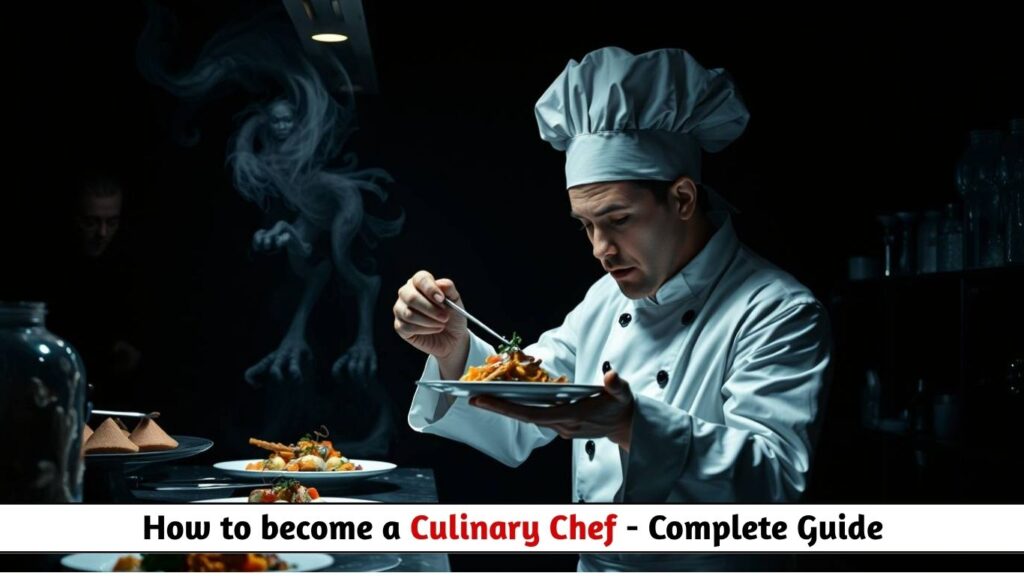
Introduction
The culinary arts represent one of the most dynamic and rewarding career paths, blending creativity, science, and business acumen. As global food culture evolves, skilled chefs are in higher demand than ever across restaurants, hotels, cruise ships, and media. This comprehensive guide explores everything you need to know about building a successful career as a professional chef.
History of Professional Cooking
Culinary arts have evolved dramatically from basic sustenance to high art:
Key Historical Milestones:
- Ancient Rome: First professional cooking schools (1st century AD)
- Middle Ages: Guild system formalizes chef roles
- 1789: Marie-Antoine Carême establishes classical French cuisine
- 1893: Auguste Escoffier revolutionizes kitchen organization
- 1960s: Nouvelle cuisine movement begins
- 1990s: Celebrity chef phenomenon emerges
- 2000s: Molecular gastronomy gains popularity
- 2020s: Plant-based and sustainable cooking dominate trends
Roles & Responsibilities of a Culinary Chef
Modern chefs wear many hats beyond cooking:
Core Responsibilities:
✔ Menu Development: Create balanced, profitable menus
✔ Kitchen Management: Oversee staff scheduling and workflow
✔ Quality Control: Ensure consistent food standards
✔ Cost Management: Control food costs and inventory
✔ Safety Compliance: Maintain health code standards
Specialization Options:
- Executive Chef (Head of kitchen operations)
- Sous Chef (Second-in-command)
- Pastry Chef (Desserts/baking)
- Saucier (Sauces and stocks)
- Banquet Chef (Large-scale events)
- Research & Development Chef (New products/concepts)
Chef Salary Expectations (2024)
Earnings vary by position, establishment, and location:
Global Salary Benchmarks:
| Position | USA | UK | UAE | India |
|---|---|---|---|---|
| Commis Chef | $32,000 | £22,000 | AED 60,000 | ₹3.5 LPA |
| Sous Chef | $48,000 | £35,000 | AED 120,000 | ₹6 LPA |
| Executive Chef | $75,000+ | £55,000+ | AED 250,000+ | ₹12 LPA+ |
Highest Paying Sectors:
- Luxury hotels/resorts
- Private chef services
- Cruise lines
- Michelin-star restaurants
- Corporate dining (tech/finance)
Essential Qualifications & Skills
Education Pathways:
- Culinary Arts Degree (2-4 year programs)
- Apprenticeships (Hands-on training)
- Specialized Certifications:
- Certified Executive Chef (CEC)
- Certified Sous Chef (CSC)
- Food Safety Manager Certification
Must-Have Skills:
✔ Knife Skills & Cooking Techniques
✔ Palate Development
✔ Leadership & Team Management
✔ Business & Cost Control
✔ Adaptability Under Pressure
Helpful Additional Skills:
- Nutrition knowledge
- Food styling/photography
- Menu engineering
- Foreign languages
How to Become a Chef (Step-by-Step)
1. Get Basic Experience
- Start in entry-level kitchen positions (dishwasher, prep cook)
- Work multiple stations to learn fundamentals
2. Formal Education
- Attend culinary school or complete apprenticeship
- Consider specializing (pastry, butchery, etc.)
3. Build Your Career
- Progress through kitchen hierarchy
- Work under respected chefs for mentorship
- Develop unique culinary perspective
4. Continue Learning
- Attend workshops/masterclasses
- Stay updated on food trends
- Travel to expand culinary knowledge
5. Advance Your Career
- Move to higher-profile establishments
- Consider competition/showcasing
- Explore media or consulting opportunities
Future of Culinary Careers
The industry is evolving with new technologies and consumer demands:
Emerging Trends:
🌱 Plant-Based & Sustainable Cuisine
🤖 Kitchen Automation Technologies
🌍 Global Fusion Flavors
📱 Digital Presence & Food Media
🧪 Science-Driven Cooking Techniques
Career Outlook:
- 15% job growth projected for chefs (2022-2032)
- Increased demand for specialized diet experts
- New opportunities in food tech and media
Conclusion
A culinary career offers endless creativity and global opportunities for those willing to work hard. While the path demands long hours and physical stamina, the rewards of crafting memorable dining experiences are unparalleled.
Key Takeaways:
✅ Master both technical skills and business acumen
✅ Develop a unique culinary perspective
✅ Build professional network and reputation
✅ Stay adaptable to industry changes
The kitchen of the future needs passionate chefs – will you answer the call?
This detailed guide provides everything needed to launch and grow a successful culinary career! 👨🍳🔥













Post Comment